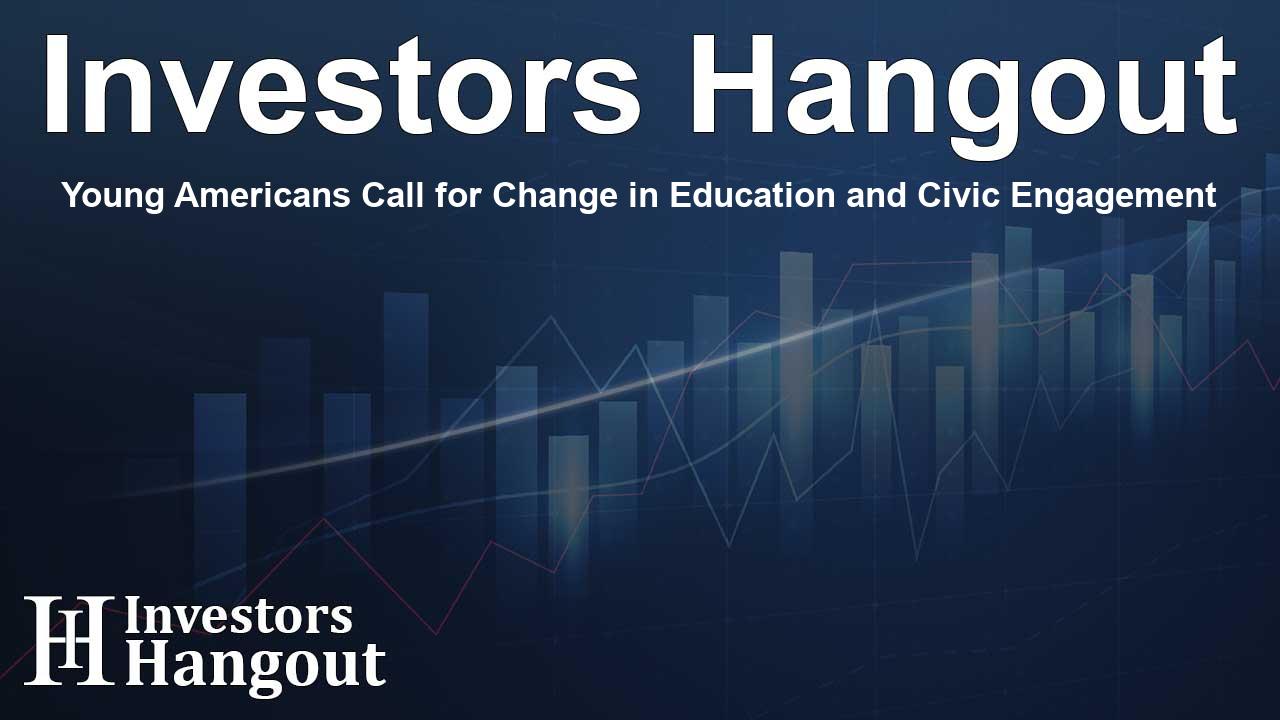Young Americans Call for Change in Education and Civic Engagement

Shaping the Future: Young Americans' Insights on Education
Young Americans have expressed their perspectives on how higher education institutions can better align with their needs, signaling a strong desire for critical thinking skills and career readiness. A recent survey conducted by the Sine Institute of Policy & Politics at American University included 1,214 participants aged 18 to 34, and it sheds light on their views regarding education, artificial intelligence (AI), and civic discourse.
Key Findings from the Survey
The findings highlight areas where young Americans see room for improvement in higher education, particularly concerning access, affordability, and diverse viewpoints on campus. Conducted by Generation Lab, this research involved a collaborative approach, with students from multiple disciplines at American University helping to design and implement the survey.
Importance of Civic Education
American University President Jonathan Alger emphasized the value young people place on civic education, noting that their views can inform policymakers and educational institutions on how to support their needs. Alger remarked, "It’s encouraging to see such engagement from young minds on important issues, signaling their readiness to face future challenges head-on."
Confidence in Higher Education
Despite widespread anxiety regarding U.S. institutions, including those of higher education, the survey revealed that a significant number of respondents—about 70%—express confidence in these institutions. However, many still question whether college carries the same value as it once did. More than half still consider it essential for achieving the American Dream, though they prioritize financial stability and fulfilling work above earning a degree.
Critical Thinking and Job Readiness
When asked about the key responsibilities of higher education, respondents identified:
- Developing critical thinking skills (61%)
- Preparing for employment (60%)
- Ensuring accessibility (59%)
Concerns about campus politics showed a mixed bag; while many young people recognized the importance of diversity, they also lamented the lack of viewpoint diversity, with majorities from both political affiliations noting limitations on free speech.
Understanding AI's Role in Education
The survey revealed a strong desire among young Americans to understand AI's implications for their futures. Despite most respondents not using AI regularly, 60% thought that colleges should prioritize AI education by hiring qualified instructors. Furthermore, 72% acknowledged the necessity of AI mastery for professional and personal growth.
Emotions Surrounding AI
When it comes to their feelings about AI, respondents grouped into:
- 31% expressed anxiety
- 21% were optimistic
- 48% felt a mix of both
The research also indicated a perceptual gap; while 55% think AI could diminish career opportunities, regular AI users expressed greater optimism about its benefits for job prospects.
The State of Civic Discourse
Issues surrounding civic discourse emerged as a critical concern among the youth. Nearly 70% identified current discussions in the U.S. as a "crisis" or "serious problem." Young Americans are calling for respectful communication and openness in discussions. They advocate for:
- Fact-based reporting from news outlets (71%)
- Modeling respectful disagreement by politicians (66%)
- Encouraging diverse news consumption (64%)
This indicates a clear desire among young Americans for a more respectful and constructive public discourse, regardless of differing opinions.
Conclusion
The poll, which took place online, illustrates the sentiments of 1,214 Americans aged 18-34. While some concerns remain regarding the political climate of higher education, these findings signify a hopeful outlook towards future innovations and improvements. Institutions of higher learning now face the challenge to adapt and respond to these vital insights.
Frequently Asked Questions
What are the primary concerns of young Americans regarding education?
Young Americans emphasize the need for critical thinking, job preparedness, and accessibility within higher education.
How does the survey define the importance of AI in education?
The survey reflects a strong desire among youths for AI education, highlighting its significance for personal and professional development.
What percentage of young Americans have confidence in higher education?
About 70% of respondents expressed confidence or high confidence in higher education institutions.
How do respondents feel about civic discourse?
Nearly 70% describe the current civic dialogue in the U.S. as a crisis or serious problem, calling for more respectful conversations.
Who conducted the survey?
The Sine Institute of Policy & Politics at American University, in collaboration with Generation Lab, conducted the survey.
About The Author
Contact Addison Perry privately here. Or send an email with ATTN: Addison Perry as the subject to contact@investorshangout.com.
About Investors Hangout
Investors Hangout is a leading online stock forum for financial discussion and learning, offering a wide range of free tools and resources. It draws in traders of all levels, who exchange market knowledge, investigate trading tactics, and keep an eye on industry developments in real time. Featuring financial articles, stock message boards, quotes, charts, company profiles, and live news updates. Through cooperative learning and a wealth of informational resources, it helps users from novices creating their first portfolios to experts honing their techniques. Join Investors Hangout today: https://investorshangout.com/
The content of this article is based on factual, publicly available information and does not represent legal, financial, or investment advice. Investors Hangout does not offer financial advice, and the author is not a licensed financial advisor. Consult a qualified advisor before making any financial or investment decisions based on this article. This article should not be considered advice to purchase, sell, or hold any securities or other investments. If any of the material provided here is inaccurate, please contact us for corrections.
